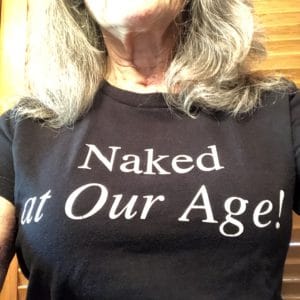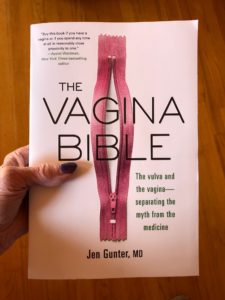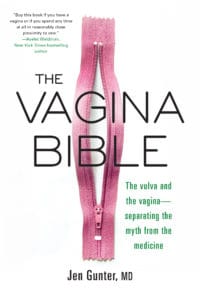Posts Tagged ‘sexual empowerment’
Sexy New Year’s Resolutions 2025
Do you want to make some changes in your sex life?
These Sexy New Year’s Resolutions will make a big difference, and they’re easy and fun to put into action. I first compiled these tips in 2018, now updating in 2025. Some come from my Senior Planet Ask Joan columns, others from my newsletter. What would you add or change? Please comment!
Redefine Sex. What brings us sexual pleasure and possibility is different at our age. That’s a feature, not a defect! Broaden your definition of sex to whatever activities arouse you and bring you sexual pleasure, partnered or solo. Embracing a new definition of sex expands your options for pleasure. Read this account of one reader’s experience.
Track the Tingle. For quicker, easier, and more satisfying arousal, figure out what time of day you feel most sexually responsive. When you feel the “tingle” – that quiver of erotic possibility – set aside time to indulge yourself sexually or schedule that time on your next free day.
Use Lubricant. A lubricant that keeps you moist and slick will increase comfort and intensify your pleasure. Use lube liberally both solo and with a partner, and reapply frequently. For health and pleasure, choose Wicked Sensual Care simply® timeless, created for our age group.
Just Do It. This is for you if you enjoy sex when you do it, but you rarely feel desire in advance. You’re experiencing “responsive desire”: your desire follows physiological arousal and pleasure instead of preceding it. So open yourself to engaging with your pleasure, and your desire will kick in.
Schedule Weekly Orgasms. If we waited until sex happened spontaneously, we might never have another orgasm. Schedule sex at least weekly, partnered or solo. The sexy anticipation –mental foreplay! — makes it even hotter when it happens.
 Enjoy Sex Toys. Our hormonally challenged bodies may need extra help to reach orgasm. A well-chosen, well-placed vibrator can be the difference between orgasm and no orgasm. Start with “Vibrators for Seniors – especially for first-timers,” then read the many sex toy reviews in this blog to help you choose. Enjoy my “Sex Toys for Seniors” webinar.
Enjoy Sex Toys. Our hormonally challenged bodies may need extra help to reach orgasm. A well-chosen, well-placed vibrator can be the difference between orgasm and no orgasm. Start with “Vibrators for Seniors – especially for first-timers,” then read the many sex toy reviews in this blog to help you choose. Enjoy my “Sex Toys for Seniors” webinar.
Self-Pleasure Frequently. Solo sex is real sex, and it’s good for your general health, your sexual health and your sense of well-being. Give yourself solo orgasms, whether you’re in a relationship or not. You’re celebrating your body’s ability to give you exquisite pleasure.
Exercise Before Sex. Increasing your blood flow with physical activity isn’t only good for the heart and muscles — it’s also good for sexual function and pleasure. One of the best things we can do to speed up arousal and orgasm is regular exercise, especially before sex.
Sex Before Food. Eating before sex sends the blood flow to your digestive system instead of your genitals. Have sex first, then eat. Sexual arousal will be easier, orgasms will be more reliable, and you will relish that meal afterward.
Use Your Words. Learning to talk about sex is the key to getting what you want. A long-term partner is likely to continue doing what used to work, even if it doesn’t work for you now, unless you redirect the action. A new partner wants to know how to please you. Speak up.
Have Sex More Often. Difficulty with arousal and orgasm is a good reason to have more sex, not less. The penis and the clitoris require blood flow for engorgement. The more you engage in stimulation – partnered or solo — the more easily the blood flows to the genitals.
Use Safer Sex. If you’re sexual with new partners, use barrier protection. Many people with sexually transmitted infections (STIs) either don’t know or don’t tell. Use barrier protection (condoms for intercourse and fellatio, dental dams for cunnilingus). Please view my free webinar, Safer Sex for Seniors with Joan Price.
Enlist Help. If you’re having sexual problems in your relationship, see a sex therapist (find one in your location) or a sex-savvy counselor. Therapy will help you identify the underlying issues, teach you how to communicate more effectively, and give you new strategies.
Talk to Your Doctor. Difficulty with arousal, erections, orgasm, or pain requires medical attention. Practice this “medical mantra” for help bringing up the subject with your doctor. If your doctor is dismissive or unable to help, ask for a referral to someone who is more knowledgeable about your concern and more accepting of you as a sexual being.

Which of these are you already doing? Which ones will you put into action this year? Leave your thoughts and ideas in the comments below.
On Turning 76
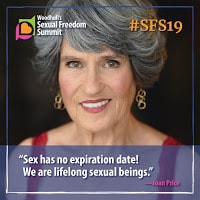 I turn 76 on November 10, 2019. I meant to write this on the eve of my birthday, but I’m rushing it by two weeks. Right now my home is under an evacuation alert because of the huge Kincade fire not far away and projected high winds tonight and tomorrow. The power will go out any minute. The bad air is exacerbating my asthma. Somehow it feels important to write this now.
I turn 76 on November 10, 2019. I meant to write this on the eve of my birthday, but I’m rushing it by two weeks. Right now my home is under an evacuation alert because of the huge Kincade fire not far away and projected high winds tonight and tomorrow. The power will go out any minute. The bad air is exacerbating my asthma. Somehow it feels important to write this now.
This past year has been astonishing, both personally and professionally. Who could have guessed that age 75 would be filled with all of these?

- A new book, Sex After Grief, that helped bring closure to my own grief and let me help others who are grieving;
- Making a film (!) about sex and aging, a project that I never envisioned doing until the lovely jessica drake told me it was time to do it together;
- Speaking events in the US and abroad and much media attention;
- A stimulating and nurturing relationship that delights me every day.
Do you want to know what matters less than I predicted? Wrinkles. Puckered thighs. Loose skin. I hear people bemoan their aging bodies, say they have to cover up. Some tell me they’re giving up sex because they don’t understand why anyone would desire their old bodies. Yes, wrinkles startle us, showing up in places we didn’t expect — even cleavage in a push-up bra! — but hey, our bodies are the youngest they’ll ever be from now on! We can celebrate our bodies, or hate them, or ignore them. Which choice serves us best? We can’t go back in time, but we can go forward accepting ourselves and glorying in our life experience. The more we accept and celebrate ourselves at our age now, the sexier we will feel.
 My view: let’s celebrate the ability of our bodies to move us, to stimulate us, to feel sexual pleasure. And why should we see ourselves as less beautiful or less desirable because we wear our experience on our skin? Isn’t that a badge of living? I’ve been indulging myself with lingerie photo shoots every few years, and I have one scheduled with Perry Gallagher on my 80th birthday. The point is not to show off my body — it’s to accept it and see it with new eyes, and chronicle my aging process.
My view: let’s celebrate the ability of our bodies to move us, to stimulate us, to feel sexual pleasure. And why should we see ourselves as less beautiful or less desirable because we wear our experience on our skin? Isn’t that a badge of living? I’ve been indulging myself with lingerie photo shoots every few years, and I have one scheduled with Perry Gallagher on my 80th birthday. The point is not to show off my body — it’s to accept it and see it with new eyes, and chronicle my aging process.

Joan, Jan. 1980
I’m amazed, actually, at how well my body functions, despite its many health challenges. (You don’t need to know specifics, other than I need 5 medications a day to keep them at bay.) I realized a long time ago that I can’t change what I inherited (family history of early heart disease; a mother who took up smoking during her pregnancy, resulting in my low birth weight and breathing problems since infancy) and what happened to me (auto accident body destruction).
But I can change what I do to keep my health day by day, hour by hour. I’m a fanatic about exercise, tracking my steps and minutes, challenging myself with 1.5 to 2.5 hours a day of fitness activity: teaching line dancing, brisk walking, Pilates. I lead a very busy life, but I always make time for exercise because it gives back more than it takes — my mental acuity and physical energy are charged up by movement, the more the better. I feel lighter in my body when I exercise. I embrace my physicality. That translate to more joy, better sex, and myriad unseen health benefits. Fitness after 50, 60, 70, or 80 – it’s your choice. Start today, don’t put it off any longer.
I wrote the following on Facebook, and I’ll expand on it now:
I often reflect on this: every path taken or not taken, every relationship that starts and/or ends, every life decision — all of these open doors (and windows) to what happens next.
I realize with the perspective of almost 76 years that our paths aren’t linear. They wind around, sometimes end up where we started, but with new knowledge. Or they lead us to a new place entirely. Sometimes the signposts along the way are helpful, other times they’re in a language we don’t know, so we make our best guess.
I think the only mistake we can make is to be afraid of taking a path because we don’t know what’s at the end of it. The truth is, we don’t know where it will take us even if we think we do.
My advice (if you want advice):
- Move as much as possible — your health depends on it.
- Adopt the “if not now, when?” mindset and live your bucket list now.
- If your relationship situation needs changing, change it.
- Put plans in place now that you might need later: financial, healthcare, will, advance directive.
- Take care of things now that you don’t want your loved ones to have to figure out when you’re unable.
- Spend time with friends — we don’t know how long they’ll be with us.
- Tell the people you love that you love them.
- Learn from the past, celebrate the present, be unafraid of the future.
As I wrote this list, I cringed at a few items. I have a list of important and time-consuming tasks I keep putting off because other things seem more urgent and easier to complete. I’ll check in again later once I’ve followed my own advice on those things!
Did anything on my “advice” list resonate with you particularly? If you were giving advice, what would you add to my list? Please comment and include your age.
The Joy of Writing about Older Sex (Old Age Sex), guest post by Stella Fosse

Many assume that erotic writers are young people who write about young characters, but more and more people over 60 are discovering the joy of erotic writing and “old age sex”.
Why? When we write sexy stories, we recapture peak moments in our lives. We can conjure all kinds of sensory details that make the story vivid. Or we can imagine an encounter we never had and bring it to life as a fictional story. We realize our desires in a safe space. Anything is possible on the page!
Erotic writing reminds us that we are sexy at every age. As we play with words, we push back on social assumptions about older people and sex. The very act of creating a story is sexy.
Reading erotica created by others our age is also fun, and a great inspiration for old age sex. Some examples I love:
- Dorothy Freed published her sexual memoir, Perfect Strangers, at age 75.
- Joan Price edited a collection called Ageless Erotica, featuring writers Dorothy’s age and older.
- Free Fall by Rae Padilla Francoeur is a fabulously well written erotic memoir with an older heroine.
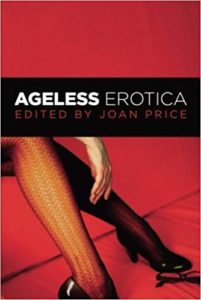


You’ll find more examples on my website, www.stellafosse.com. These books are enjoyable, and you can even use favorite sentences from their stories as writing prompts for yours.
If you experiment with erotic writing — and please do! — it is important to keep a playful and relaxed attitude about what you write. Even for longtime authors, first drafts are just a place to try things out. So pat yourself on the back for being brave, and write without judging.
Now let’s give it a try!
Recall an especially sexy experience in your life. It could have happened yesterday or twenty years ago. Remember it with all your senses:
- What was the other person’s aroma?
- How did it feel to touch them and for them to touch you?
- What did you say to one another, and what other sounds did you make?
- What did you especially love about the other person’s appearance?
- What about the circumstances: What was going on in your lives that made this moment memorable?
On your first writing day, take just ten minutes and begin to write what you remember. If some aspect of the experience eludes you, feel free to make it up as you go.
The next day, write for ten more minutes about that experience. If you keep writing for ten minutes each day, soon you will have a complete draft of an erotic story that you can look back upon and savor.
I hope you will try writing erotica, and that it brings you much joy.
—–
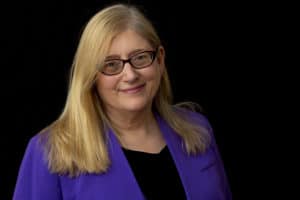
– Stella Fosse is an erotica writer, the author of Aphrodite’s Pen: The Power of Writing Erotica after Midlife, and a late bloomer whose erotic life blossomed in her late 50s. Access a free story writing course from Stella here.
The Vagina Bible by Jen Gunter: book review
The Vagina Bible: The Vulva and the Vagina—separating the Myth from the Medicine by gynecologist Jennifer Gunter is a lively, educational guide separating information from misinformation, presented in a clear, smart, sassy style.
“There’s a lot of money in vaginal shame,” writes Jen Gunter. She is known as the clever and outspoken OB/GYN on Twitter (@DrJenGunter—follow her!) who challenges celebrities and companies trying to sell us unneeded (and sometimes harmful) solutions for invented problems. She rips their claims and substitutes solid facts. All of this book is educational, revealing, and empowering. Examples:
- “[T]he other problem with doctors not asking about sex is women who have medical conditions that interfere with their sex life, typically conditions that cause pain with sex, end up minimized. Many women suffer for years not realizing they have a medical problem that has a diagnosis and treatment.”
- “It is hard to overestimate the damage done by Sigmund Freud in popularizing the myth of the vaginal orgasm. Only one third of women are capable of achieving orgasm with penile penetration alone…so the idea that everyone should be having orgasms this way results in two thirds of women believing there is something wrong with their sexual wiring when really they are perfect. Not orgasming with unassisted penile penetration is not a flaw, it’s a feature.”
- “MRI studies looking at anatomy during heterosexual sex reveal that the clitoris can be compressed by the penis, which is why some women can orgasm with penile penetration.”
- “Vulvar cleansing has never been studied. That is interesting, considering the array of products that claim to be gynecologist tested or approved…Some of these washes make claims they can reduce bacterial vaginosis (BV). They can’t. An external wash cannot possibly impact the inside of the vagina, and washing internally with one of these products (some women do that—please don’t) could definitely increase your risk of BV by killing good bacteria or irritating the vaginal mucosa.”
Parts of The Vagina Bible are so hilarious that you’ll want—as I did—to read them aloud to a companion:
- “Almost every woman has been told at least once…to wear white cotton underwear as a medical recommendation to prevent yeast infections and other vaginal mayhem. This makes it sound as if vaginas and vulvas are accidents waiting to happen. The vulva can handle urine, feces, and blood, and vaginas can handle blood, ejaculate, and a baby, so this idea that a black lace thong is the harbinger to a vaginal or vulvar apocalypse is absurd.”
- “I have read about plastic surgeons who do labiaplasty [surgical reduction of the labia minora] so women can look ‘sleeker in so-called athleisure wear.’ I know some people call this look ‘camel toe,’ but I prefer ‘labial cleavage,’ and the answer is not surgery—it is better-fitting athletic wear.”
- “I’ve stared at more male butt cracks (gluteal clefts) than I care to remember…What I never hear is that men should seek out plastic surgeons to get their gluteal clefts sewn shut. I also can’t imagine a similar industry for men that profits from surgically trimming penises so they look better in tight jeans.”
 The second half of this book is a serious, comprehensive, scientific resource about infections, conditions, symptoms, and treatments. Dr. Gunter has been treating vulvar and vaginal diseases for nearly 30 years. If you have discomfort, pain, or other symptoms that might be a medical issue, read the relevant chapters of this book, then, armed with this information, take it to your doctor.
The second half of this book is a serious, comprehensive, scientific resource about infections, conditions, symptoms, and treatments. Dr. Gunter has been treating vulvar and vaginal diseases for nearly 30 years. If you have discomfort, pain, or other symptoms that might be a medical issue, read the relevant chapters of this book, then, armed with this information, take it to your doctor.
This guidebook to the care and functioning of the vulva and vagina by cheeky gynecologist Jen Gunter should be on your bookshelf. Thank you, Dr. Gunter, for this much-needed resource: The Vagina Bible.
